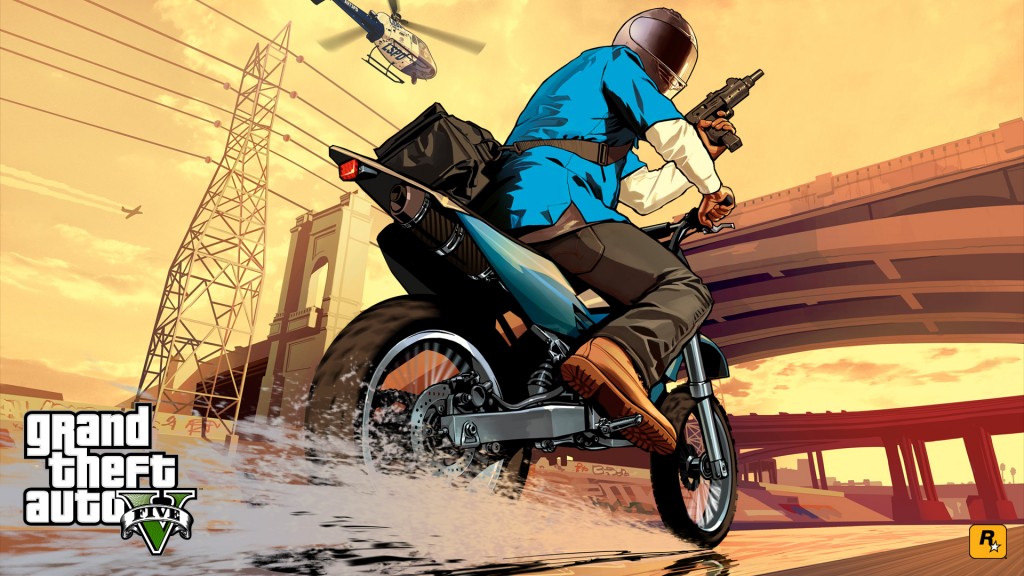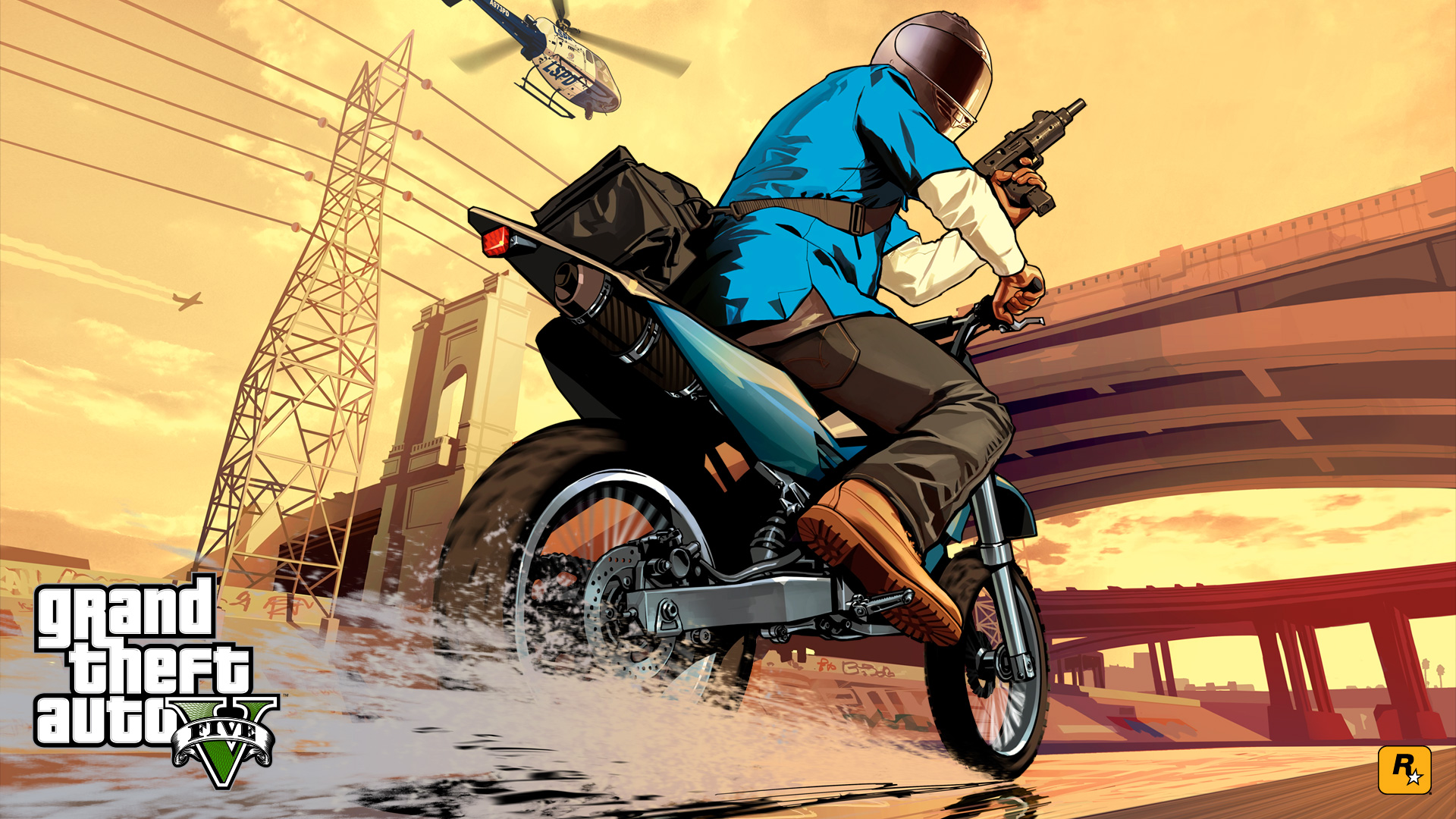
“Grand Theft Auto” is fun. With their well-realized characters and staggeringly huge and detailed open-worlds, it’s almost impossible not to be entertained by at least some portion of the “GTA” games. But to hear the way people talk about the series (“GTA V” is tied with “GTA IV” as the highest rated game of all time on Metacritic) and to see the most recent installment’s sales numbers ($1 billion in only three days), you’d be forgiven for thinking that video games have found their defining franchise; the game as a series to show to the rest of the world that gaming has grown up and is a legitimate art form. “Grand Theft Auto” is not that series. “Grand Theft Auto” is not gaming’s “Citizen Kane.” It’s not even gaming’s “Goodfellas.” It’s less “Godfather” and more Michael Bay.
“Grand Theft Auto IV” and “Grand Theft Auto V” have found themselves in an incredibly rare (and profitable) niche in the world of video games. The games give the player a living world to explore and the tools to interact with it — like cars, boats, submarines, helicopters, planes and an arsenal of weaponry. For most players, this combination usually results in car chases, shootouts, explosions and all manner of other insanity and chaos. This is the side of “GTA” that basically appeals to everybody looking for mindless fun, gamer and non-gamer alike. But both “GTA IV” and “GTA V” also attempt to tell serious stories about the dark, unglamorous side of crime, American culture and the people who inhabit those worlds. With a massive script, quality voice acting, well-directed cutscenes and something to say about the world we live in, “GTA” is often pointed at as a standard of video game storytelling. This attempt at mature storytelling appeals to a different set of gamers: those interested in video game narratives. Combining mature storytelling and stupid, fun gameplay, Rockstar has created a series that can just about appeal to everyone. It’s a perfect storm of hype, making each successive “Grand Theft Auto” game more money and more critical acclaim.
The problem is that while “Grand Theft Auto” excels with being stupid fun, it doesn’t do so well with its storytelling. The major issue lies in the conflict between its story and its gameplay. The games’ stories show crime and violence to be horrendous acts, ruining people’s lives and corrupting who they are. The gameplay, on the other hand, is over-the-top and goofy, making violence entertaining and thus the goal for the player. The violent fun had in the gameplay is the exact antithesis to what the games’ narratives tell you. This is called ludonarrative dissonance. It’s the disconnect between what a game’s story and gameplay are telling the player. “GTA IV’s” Niko Bellic opines during one cutscene of the atrocities he saw committed at war, yet the player can then proceed to have Bellic hijack a police car, drive it down the oncoming lane with Stevie Nicks blasting from the radio, crash headfirst into another car and go spinning through the air into a crowded sidewalk. The game makes violence fun, yet tells the player that violence is bad. That’s ludonarrative dissonance. “GTA V” partially solves this issue by allowing the player to control Trevor, a deranged violent man who would enjoy the type of chaos that “GTA’s” mechanics encourage, but the problem still persists elsewhere in the game.
While admirable in an industry where the best-selling game series of the last four years has a story that amounts to “America is rad. Let’s shoot foreigners,” the series’ lampooning of American culture mostly just resorts to unsubtle, uncreative satire and crude penis jokes. In “GTA V,” there’s a company called Fruit that makes sleek white computers and smart phones, its slogan being, “Think Simple. Think Minimalism. Think Overpriced.” The company’s logo is a silhouette of a bowl of fruit. Two round fruit are sitting side-by-side in the bowl and a banana is sticking up vertically between them. This is what most of the humor in “Grand Theft Auto” devolves into: thinly-veiled, easy jabs at well-known punching bags and penis jokes.
“Grand Theft Auto” is fun. Rockstar’s success with the series has allowed them to make each game bigger, more detailed and more technically impressive than the one before. But “Grand Theft Auto” isn’t the be-all and end-all of video games. “Grand Theft Auto” has hours of polished content, it puts effort into its narrative and it at least tries to have a message, but in the end it’s just a stupid, fun blockbuster that’s too often confused for art.


